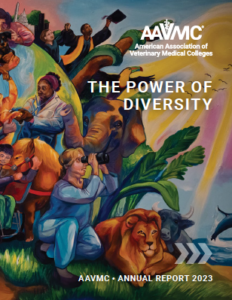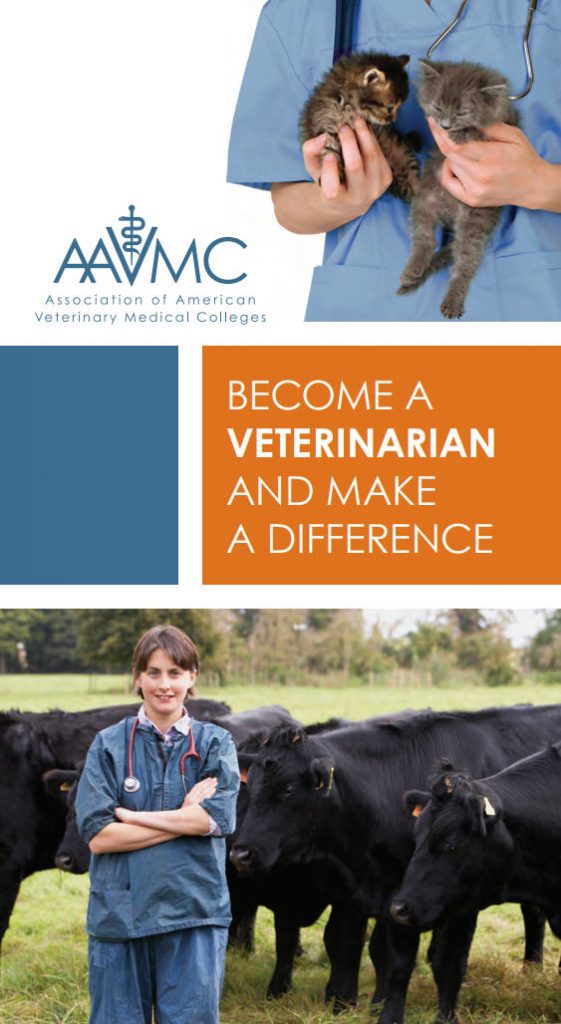Careers in Veterinary Medicine
Embark on an exciting career path in veterinary medicine, where you can put your knowledge and compassion into practice. Preventing disease and healing animals is at the heart of what veterinarians do. But they also do so much more.
You can view a list of potential veterinary career paths here.
Whether they’re pets, livestock or working animals, animals matter to individuals and society. Every community needs veterinary professionals to provide animal health care, but veterinarians also do many other kinds of jobs. They make sure the nation’s food supply is safe. They work to control the spread of diseases. They conduct research that helps both animals and humans. Veterinarians are at the forefront of protecting the public’s health and welfare.
Besides medical skills, veterinarians often take a holistic approach to human well-being and animal welfare that, combined with communications and problem-solving skills, makes veterinarians uniquely qualified to fulfill a variety of roles. Many veterinarians, of course, provide care for companion animals through private medical practices, but veterinarians are also involved in promoting the health and welfare of farm animals, exotic animals, working animals (like those in the equine industry), and those that need a healthy environment in which to thrive, whether that environment is a rain forest, a desert or even the ocean.
Outside of companion animal practice, the largest employer of veterinarians in the United States is the U.S. Department of Agriculture’s Food Safety and Inspection Service, but veterinarians are found throughout government in roles where they contribute to public health, the environment, and even homeland security, as well as working in research and public policy.
Many veterinarians are engaged in work at the intersection of both human and animal health. For example, veterinarians play an important role in food safety, where epidemiological research is crucial to forecasting the threat of food-borne diseases and outbreaks. They work to keep cattle and other food animals healthy by developing and testing various farm control methods that help to detect, limit, and prevent the spread of food that might be contaminated by salmonella, E coli or other pathogens. And they’re often on the front lines of surveillance where their extensive medical training can help them to detect and treat the outbreak of diseases that have the potential to make the jump from animals to humans.
Unmet needs for veterinary expertise exist in some sectors of veterinary medicine, such as public health, biomedical research, and food safety. To help address the lack of veterinarians in biomedical research, the AAVMC is a co-sponsor of the Veterinary Scholars Program. The program’s mission is to expose veterinary medical students in their first or second year of veterinary school to biomedical research and career opportunities in research. The program culminates in the Merial NIH National Veterinary Scholars Symposium, where veterinary students participating in the program gather from all over the United States and Canada to present their research findings and share experiences from their various programs.
Learn more about how to embark on a path that will lead to a veterinary medical career on our Students, Applicants and Advisors portal.






SHARE